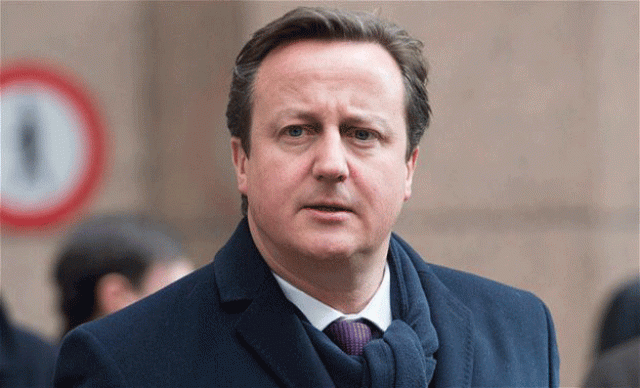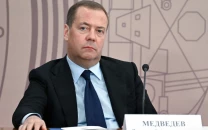David Cameron to unveil five-year plan to combat home-grown terrorism
He will also launch a review on how to improve social integration in ethnic minority communities

British Prime Minister, David Cameron. PHOTO: AFP
Cameron will outline a counter-extremism strategy, due to be published in full later this year, which seeks to stop the spread in Britain of the radical ideology promoted by Islamic State (IS) militants in Syria and Iraq.
Read: British woman charged of affiliation with IS
About 700 Britons are estimated to have travelled to Syria and Iraq to join IS militants. Britain's security threat level is at its second-highest setting, meaning an attack is highly likely, and last month 30 British tourists were killed in a gun attack in Tunisia.
A key aim of the strategy will be to combat the rise of such so-called "homegrown extremists", something which Cameron says cannot be done without understanding and tackling the reasons why people are drawn to IS.
"When groups like IS seek to rally our young people to their poisonous cause, it can offer them a sense of belonging that they can lack here at home, leaving them more susceptible to radicalisation and even violence against other British people to whom they feel no real allegiance," he will say.
Cameron will warn that "strong, positive Muslim voices" are being drowned out by those who espouse the extremist ideology of IS, although stopping short of advocating violence.
Read: Cameron - IS militants are plotting 'terrible' UK attacks
He will also launch a review on how to improve social integration in ethnic minority communities, according to extracts from the speech released to the media.
On Sunday Cameron said he wanted Britain to do more to help the United States destroy IS in Syria, and government sources say he is expected to seek parliamentary approval to extend anti-IS bombing missions into Syria. Britain currently only conducts airstrikes in neighbouring Iraq.


















COMMENTS
Comments are moderated and generally will be posted if they are on-topic and not abusive.
For more information, please see our Comments FAQ